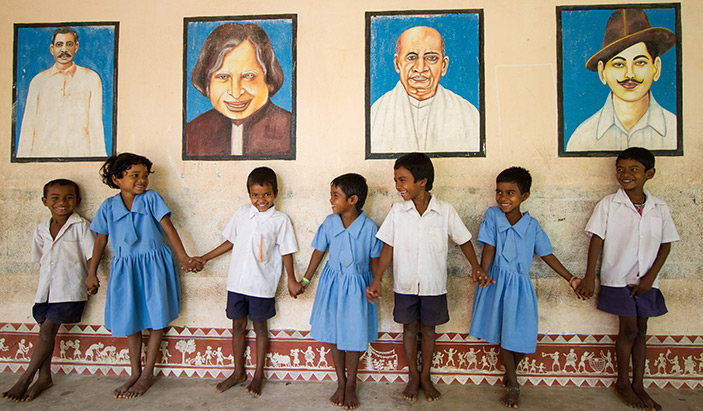START EARLY: Necessity & Awareness of Early years’ Education

Amongst all learning, the ability to read is central to numerous cognitive development processes, comprehension, and learning activities. One of the many reasons for poor language and early literacy skills of children is that diversity of children in terms of cultural, economic and linguistic backgrounds is ignored in classroom transactions in government schools. There is also a lack of continuous mechanisms and reflective platforms that support teachers on perspective building, pedagogy improvement and building sensitivity towards the psychology of the learner. Further, schools lack access to variety of age and grade appropriate mother-tongue based reading resources in classrooms. This restricts children studying in early grade government schools, especially from marginalized backgrounds, from making good initial progress in learning to read, thereby prolonging their problems at higher grades as well.
The novel Early Grade Reading (EGR) intervention has been designed to tackle all the above systemic, pedagogical and learner-centric issues. As part of the project, continuous support and handholding is provided to teachers by reflective forums at cluster levels, in which networks of teacher meet, reflect and co-learn from their learning and challenges collectively. Teachers are also offered access to teaching materials and tools to enhance classroom processes specific to early years’ education, like balanced instructional approaches, handbooks and activity banks. Further, schools have been assisted in developing libraries to create a print-rich environment for children. Books are made accessible to children; especially for early years, libraries are supplied picture books, books in mother tongue, materials that are bilingual in nature to promote reading habits in children.
CARE India understands that parents and community members are role models for children. Thus, it becomes important to create a ‘reading culture’ in the society to motivate children to read. To facilitate this, mini- libraries have been set up where parents/family members of the children can attempt to read, engage with reading or borrow books, including ones that can be ‘read’ to children. To influence the larger system and key stakeholders about early grade approaches and to create a sustainable and long term solution to the problem, CARE India has created scientific evidences and knowledge products that are shared with government functionaries, policymakers and other influencers.




